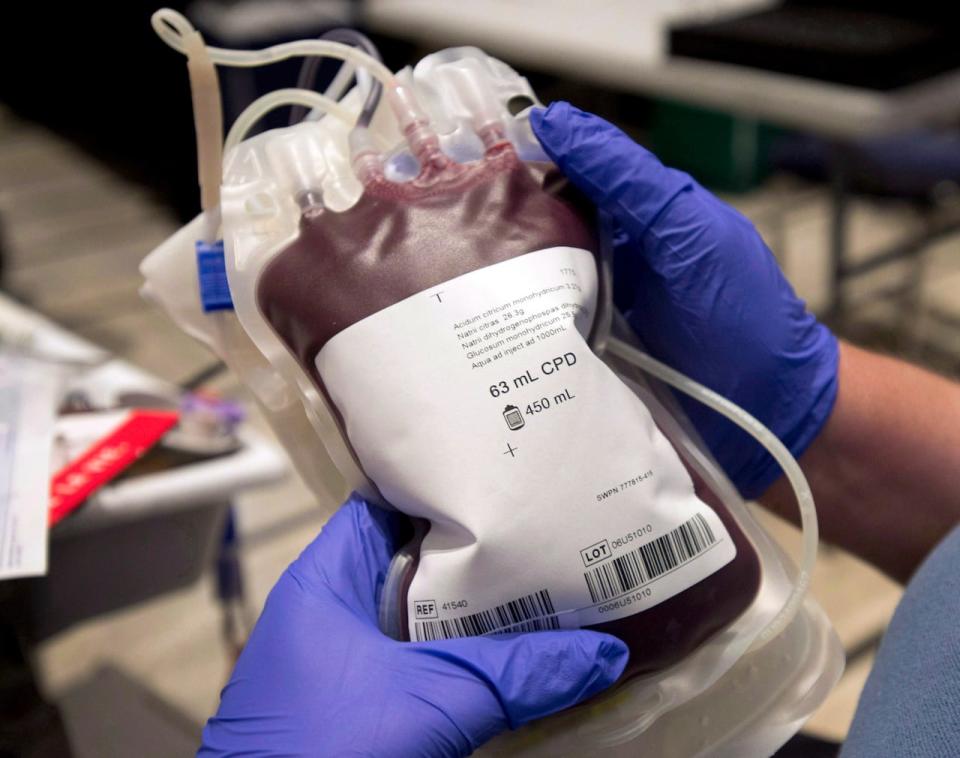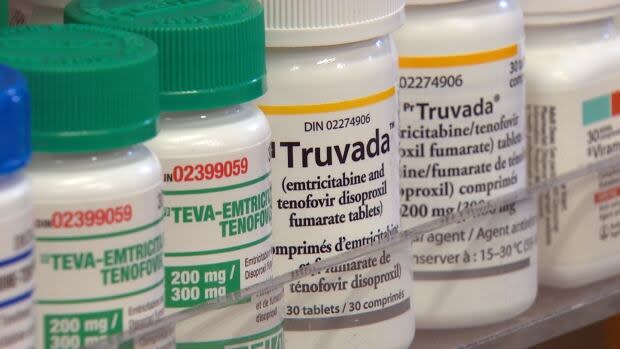Canadian Blood Services apologizes to the 2SLGBTQ+ community for donation ban

Canadian Blood Services has apologized to the 2SLGBTQ+ community for its "harmful" former policies that prevented or restricted men who have sex with men from donating blood for decades.
For years, the blood donor service prevented sexually active gay and bisexual men from donating blood and plasma. Its rules for donors were updated in 2022 to focus on sexual behaviour rather than sexual orientation.
Dr. Graham Sher, chief executive officer of Canadian Blood Services, said the apology was aimed directly at men who were prevented from donating and the broader 2SLGBTQ+ community — even those who could donate.
"The policy was put in place with the intent to protect patient safety after the Canadian blood system crisis of the 1980s. We recognize that for many years the same policy reinforced a harmful public perception that someone's blood is somehow less safe because of their sexual orientation," Sher said after delivering the apology in Ottawa Friday morning.
"We regret that this policy contributed to discrimination, homophobia, transphobia and HIV stigma within society."
Canada introduced a lifetime blood donation ban for gay men in 1992. The policy was later changed to prevent men who have sex with men from donating blood for five years after being sexually active, and was gradually reduced to three months.
Previously, Canadian Blood Services argued the deferment period was necessary because HIV is more prevalent among men who have sex with men.
After years of pressure, the charitable organization recommended in 2021 eliminating questions about sexual orientation for donors, pointing to research it had conducted, as well as evidence from abroad, showing the change would pose no threat to the blood supply.
The new policy, which focuses on sexual behaviour-based screening, officially took effect in late 2022 following approval from Health Canada, fulfilling a 2015 Liberal election campaign promise.
Sher said he hopes the apology will help mend relationships with individuals and communities who were affected by the former policy.
New policy focuses on high-risk behaviour
Canadian Blood Services' new screening policies focus on high-risk behaviour among all donors — such as having multiple sexual partners.
Instead of being asked about gender or sexuality, potential donors are screened on higher-risk sexual behaviour, such as anal sex with new or multiple partners. If they have, the prospective donor has to wait three months after that activity before donating blood.
Blood services says the three-month wait is in place to reduce the chances of their tests missing recently acquired infections.
PrEP users still restricted from donating
The new rules still have their critics.
Advocates say men who have sex with men will still be barred even if they use condoms during anal sex.
Canadian Blood Services says asking potential donors about condom use isn't effective for screening because they're not always effective, can break or slip, and people can't always be relied on to remember if they used one or not.
Legal advocacy group Egale Canada called the apology historic and overdue.
"The MSM deferral policy arose out of the fear and scientific ignorance that predominated during the tragic AIDS epidemic and the associated tainted blood crisis of the 1980s," said Egale Canada, which was part of the Canadian Blood Services LGBTQ+ advisory committee.
"However, there is still more work to be done."
Egale said the updated policies on anal sex still disproportionately impact queer men.
"Egale Canada is committed to continuing to work with Canadian Blood Services to resolve remaining concerns and ensure that all blood donors are treated with respect and dignity in an environment free from discrimination," said their statement.
Individuals who use pre-exposure prophylaxis treatment (PrEP) and post-exposure prophylaxis (PEP) — medication to prevent HIV infections — are also restricted. Users must wait four months since they were last on the medication to donate blood.

Pre-exposure prophylaxis treatment (PrEP)is a groundbreaking treatment that protects against HIV. (CBC)
Canadian Blood Services says low levels of HIV may be missed when testing people on those medications and more research is needed. Sher said blood services around the world are looking into the issue.
Michael Kwag, a member of Canadian Blood Services' 2SLGBTQIA+ advisory committee, said he'd like to see a future where people who are on medication to prevent HIV can donate but recognized there are still questions about the impact those medications have on tests.
"As someone who is on PrEP and cannot donate for that reason, I do appreciate and recognize how important it is that these questions are answered in the most comprehensive and conclusive kind of way," he said.
"Queer people also depend on a safe and reliable blood supply."
Sher said Canadian Blood Services is also examining the policies it has in place to prevent malaria from entering the blood supply, which affects people from Black and South Asian communities.
"You'll see ongoing changes in policies over time," he said.
Earlier this week, Health Canada changed its longstanding policy preventing gay and bisexual men from donating to sperm banks in Canada.
The regulator's more inclusive approach replaces screening questions about men who have sex with men in the previous three months with gender-neutral questions about sexual behaviour with a new partner or multiple partners over the same time period.
Before the amendment, male sperm donors were asked if they had sex with men, while egg donors were asked if they'd had sex with men who have sex with men.

 Yahoo Sports
Yahoo Sports 
